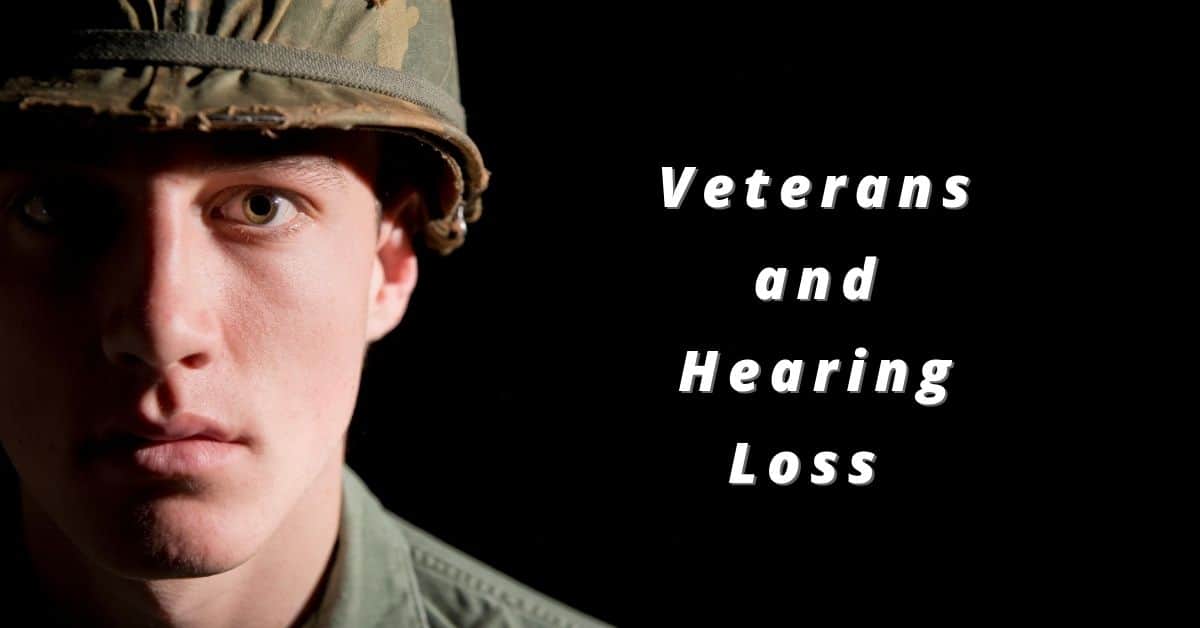- The Impact of Smoking and Alcohol on Hearing: Breaking Down the Risks - April 28, 2024
- The Future of Hearing Health Research: Promising Breakthroughs - April 18, 2024
- Hearing Health in the Classroom: Strategies for Teachers and Students - April 6, 2024
Tinnitus and hearing loss are the two most common health concerns among returning veterans in the United States. While the Department of Veterans Affairs does provide some assistance to veterans seeking treatment for tinnitus and hearing loss, the military has also been steadily improving its approach to hearing protection and helping to prevent veterans from suffering from hearing loss in the first place.
Blast Exposure
Blast exposure can cause central auditory processing disorder (CAPD) or “hidden hearing loss.” With this condition, a person will show normal hearing ability on a hearing test but have trouble understanding speech or discerning between sounds in noisier environments. This is likely because blast exposure is a type of head trauma. The ears can still pick up sound effectively, but somewhere between the cochlea (where sound is converted from mechanical to electrical energy) and the brain, some information “leaks” out of the nerves that carry it because of damage to the myelin sheaths which surround them. In the controlled environment of a hearing testing facility, the lesser amount of information reaching the brain is not overwhelmed by other sounds.
The Scale of Hearing Loss Among Veterans
In 2017, the VA paid disability compensation to 1.79 recipients for tinnitus and 1.16 million recipients for hearing loss. In 2010, the last year for which data is available, the VA bought one out of five hearing aids sold in the U.S. for $348.15 a piece.
In 2018, the 3M company, which knowingly sold ineffective hearing aids to the Department of Defense between 2003 and 2015, settled claims in the amount of $9.1 million. Soldiers have also complained about having to choose between protecting their ears and communicating effectively in battle, meaning that in some cases they are forgoing hearing protection.
The military seems to have recognized that tinnitus and hearing loss, a “silent epidemic” amongst soldiers, ought to be approached more holistically, incorporating not only treatment for veterans but a better attempt to use technology going forward to reduce the prevalence of hearing loss in the first place.
TCAPS
The Department of Defense has invested in upgrading TCAPS (the Tactical Communication and Protective System) since 2013 with a view to reducing the economic impact of treatment for tinnitus and hearing loss among returning veterans. TCAPS is an in-ear system that is like a cross between an earplug and an earbud. It blocks dangerous outside noises while transmitting signals at lower levels. Each member of a team wears a microphone and the earpieces, so they can talk to each other while blocking out the noise of weapons. In addition to saving money at the VA, the system also improves the lives of countless returning veterans while enabling more effective communication in life-threatening situations.
The Department of Defense’s long-term goal with TCAPS is to start providing it at boot camp so soldiers can become comfortable with it right away and prevent the hearing loss that occurs during training.
Other Protective Measures
Level-Dependent Earplugs: These are small and transportable like normal earplugs, but they allow low-level sounds through unimpeded, while attenuating only high-frequency or impulse sounds. This allows for effective communication while still protecting the ears during periodic bursts of fire. They are not effective in aircraft or other combat vehicles, where there is a constant noise source.
Earmuffs: Surrounding the whole ear, earmuffs excel at blocking intermittent exposure to noise. If a person needs to hear a softer sound, they can simply lift up one side of the earmuffs, then drop it back into place against their ear to resume protection. Some earmuffs also incorporate speakers and microphones, much like TCAPS.
Noise-Attenuating Helmets: These provide protection against head trauma as well as hearing loss. While more difficult to remove and replace than earmuffs or earplugs, these are a great option when driving or piloting a vehicle, where a person is going to be in one place for an extended period while being exposed to constant noise. These helmets also incorporate communications systems that integrate with TCAPS.
Suppressors: Approaching hearing protection from the other direction, suppressors are devices that attach to weapons to make their report softer. Advantages here include being able to communicate freely without electronic systems, and reducing the enemy’s ability to hear your weapon’s report.
Seeking Treatment for Hearing Loss
If you are a veteran and you are concerned about your hearing abilities, it is important to seek treatment. Check out the benefits available to you through the VA here, and then contact us to schedule an appointment for a consultation. We look forward to serving you!

